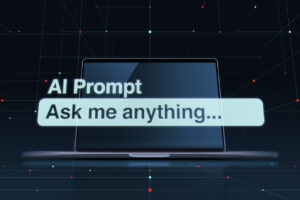How AI helped Hotwire Global unleash ‘chaos’ and creativity in the best way
A company-wide challenge opened new pathways of discovery.

Often, AI programs are carefully managed by a select group of workers who proceed carefully and cautiously with this promising yet dangerous technology.
But sometimes, you need to inject a little chaos into the proceedings.
Hotwire Global offered a splash of training and then unleashed more than 400 people from across departments to create wild new custom GPTs for the business.
The results blew away Anol Bhattcharya, managing director, marketing service: APAC for Hotwire.
Here’s how the challenge came together – and what came out of this grand experiment.
Answers have been edited for brevity and clarity.
How are you interacting with AI?
I’m using them personally, professionally all the time. So multiple different things, starting from GPTs to Claude to building new RAG or retrieval augmented generations.
How did you come up with the idea for the AI challenge?
Every agency is forming a team or hiring new people to have this lab of innovation using AI and gen AI. And then also another part which everybody is trying to do is putting the guardrail of governance. We are also doing that. But I think this (contest) is something totally different, and I haven’t come across that from anywhere else.
That is, what if we give the (AI) tool to everybody in the organization, give a little bit of training, bare minimum training, and not give too much instruction, and just ask them to build something? And when I say people in the company, it’s not only just the techies, but the people who are comms specialists, even the finance person, just to see what they come up with.
And (we) conducted a few hands on trainings, like how to create some custom GPTs, and showed some real world examples of some of the GPTs we created for clients and things like that – and let it go.
We received many of awesome, just mind-blowing examples that we never even thought of, from hilarious to very useful. Some awesome internal process development tools, some of them are client facing, which we are developing further now. It’s not only the AI, it’s any comms and marketing agency’s innovation should look like this: give them the tools, teach them basics and get out of the way, rather than trying to mold it too much. So really cool things happened.
Why do you think the results were so good?
Imagine as a child, right? Your imaginations are limitless. Sometimes our education kind of stifles us, and that’s what happened.
Because they were not aware of all the restrictions and strategy and all those things, they just focused on something which they wanted to do.
Let me give you the silliest example. Jeremy’s team came up with “ideas that can get you fired.” That means you ask for a campaign idea. You give them this kind of a campaign, this kind of a company, give them a campaign idea and it will always give you a politically incorrect answer, like the weirdest idea. But this became our brainstorming tool, because it’s always good to start with pushing the envelope and coming back. Some of them are just funny, like one team came up with a relationship advisor, which only speaks in Taylor Swift songs lyrics. But some really, really useful things came up.
What was the winner?
The winner was an RFI helper. We have a huge database of RFI already submitted. And as an account manager, you’re building something, you can just use that as a RAG and query, and it gives you the answer. Everyone, account managers and directors, just loved it – ‘We want to roll this out right now!’ We had to stop them so they let us put the guardrails on so that it doesn’t hallucinate and all those things. But this idea came out of nowhere. We haven’t thought of that as an AI team, but it came from the ground level. That’s what excited me the most.
They submitted this AI custom GPT as a resume. Her name is Tricia, and she can do multiple things. She can find out RFI help. She can find out who is the expert where — like, I am doing a cyber security comms planning, who I can reach out to, who’s got experience, tapping into our capability metrics and finding the resource internally on that. We got blown away by that.
Out of the 40 ideas submitted, how many will you continue to develop?
I will say at least eight. Of course, we have to find time to fine tune this. That’s always the thing — people have their day job. The use case is definitely there to be used, either for internal process or for client facing ones.
You said in a LinkedIn post talking about this contest that “culture eats strategy for breakfast.” What did you mean by that?
Sometimes you just need the chaotic energy to breed innovation. So this is the example of just releasing the chaos in the world and let them do anything with the tool, without putting too much restriction on.
There were pictures getting posted, and all people wanted to be part of one team or another. Slack is buzzing. So two things happened. Not only these tools came out suddenly, like 400 people around the world are interested in using AI in their work. It’s a sudden burst of energy from everyone to use that culturally. We changed the company’s perception to just not talk about AI, just not read about AI, it’s just use the AI to do your things. So something amazing happened.
What advice would you give organizations wanting to do a contest like this?
I will say that there is a basic, minimal understanding required. So train the trainer. This spread like wildfire: Ignite the thing in one place. Train a few people. Then make them the evangelist. They will go and push that.







